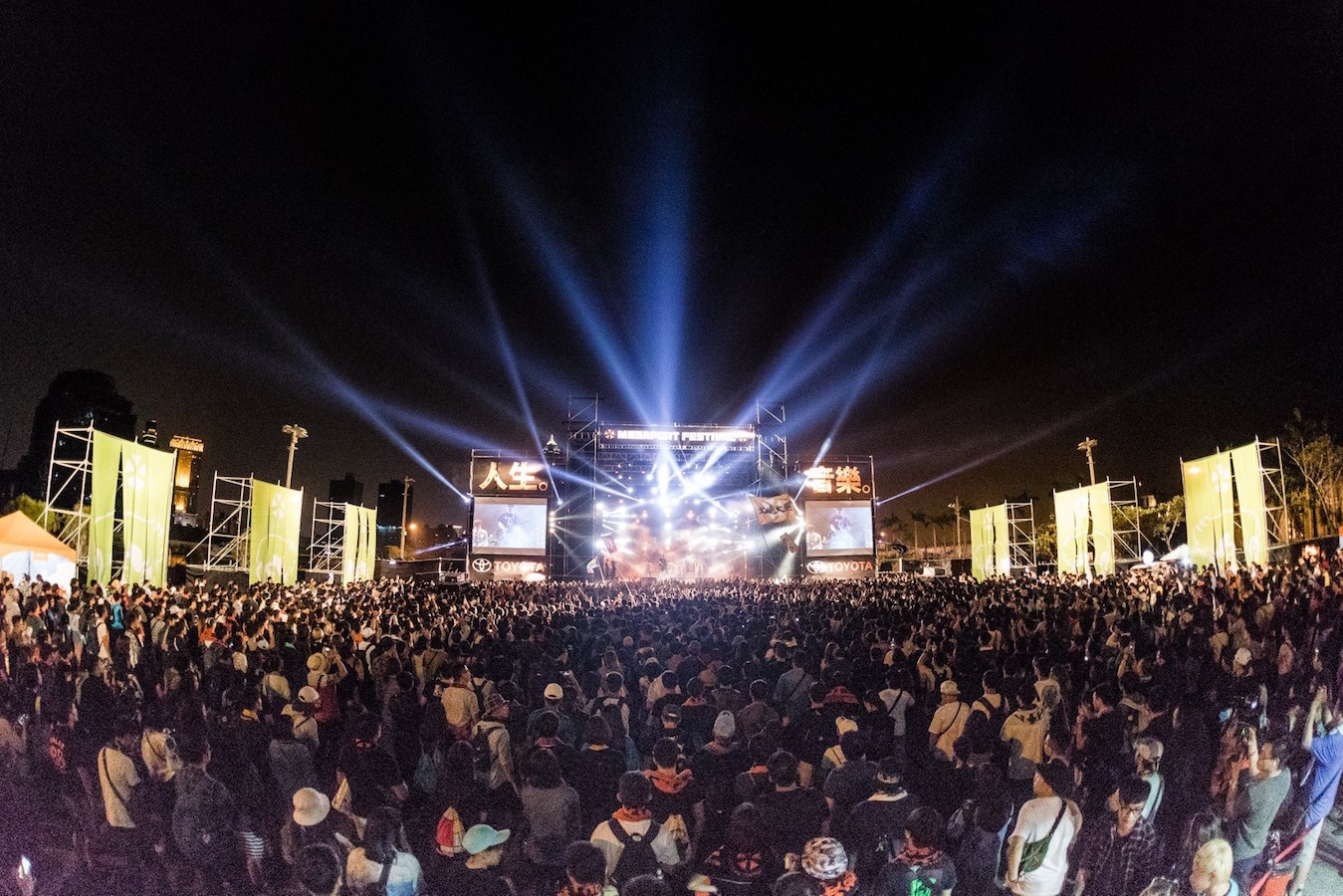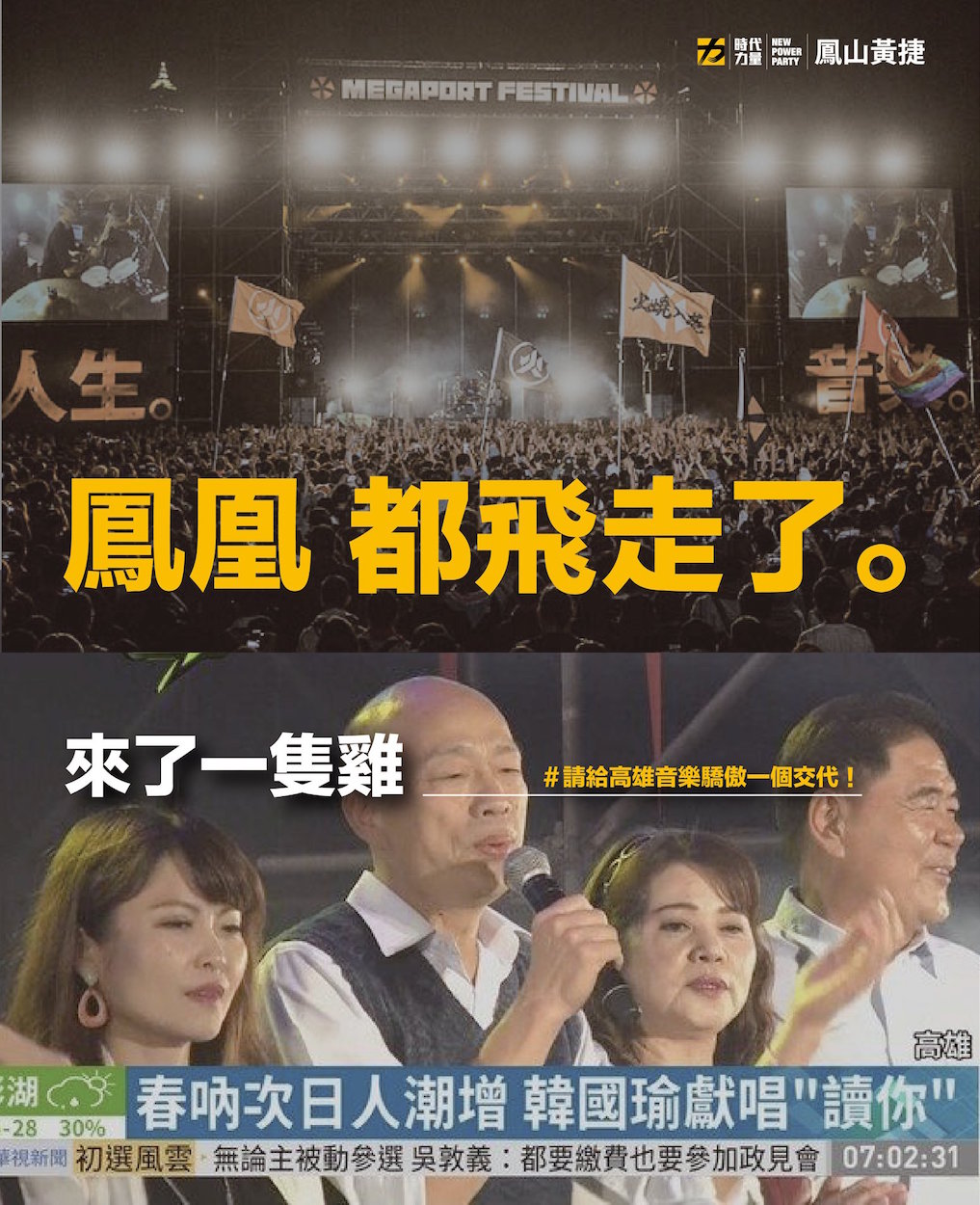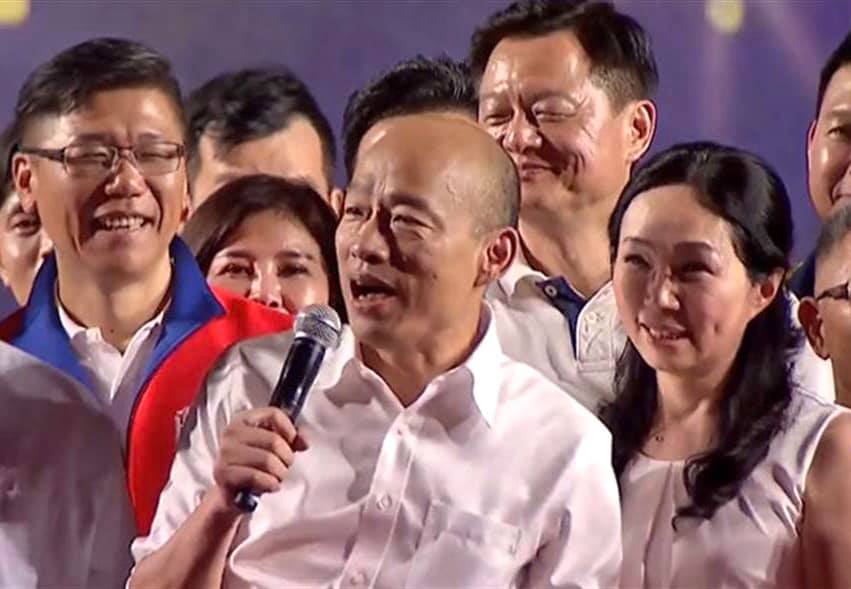by Brian Hioe
語言:
English
Photo Credit: Megaport Music Festival/Facebook
THE MEGAPORT MUSIC Festival, likely Taiwan’s largest indie rock festival, announced earlier this month that the festival would be coming to an end after sixteen years. It is widely known that the festival, which is traditionally held in Kaohsiung, is shutting down due to pressure from Kaohsiung mayor Han Kuo-yu of the KMT.
In particular, the Han administration claims that it is investigating the eleven years of subsidies provided to the music festival under previous DPP administrations. The Han administration claims that this points to corruption by Han’s predecessor, Chen Chu of the DPP, the current secretary-general of the Presidential Office.
 Photo credit: Megaport Music Festival/Facebook
Photo credit: Megaport Music Festival/Facebook
Chen was highly popular during her tenure as mayor of Kaohsiung and is widely known for her activism during the Taiwanese democracy movement. However, this did not prevent Kaohsiung voters from deciding to vote KMT, rather than DPP, during last year’s elections.
It is thought by many that Han’s investigation into the Megaport Music Festival is politically motivated. For one, the Megaport Music Festival hosts a number of politically active Taiwanese bands that generally favor Taiwanese independence, including bands that were active during the 2014 Sunflower Movement. Independent legislator and pro-independence activist Freddy Lim, himself the frontman of the heavy metal band Chthonic and until recently a member of the NPP, is one of the founders of the festival. Lim only stepped down from running the festival after being elected legislator in 2016.
One notes in order to shore up his declining popularity in Kaohsiung, Han seems to have turned toward to alleging that his predecessor, Chen, was corrupt. This would seem to be a time-old tactic of populist authoritarians, in attempting to engineer scandals against enemies—particularly political rivals or predecessors—in order to distract from their own failings.
Likewise, with Han coming increasing fire from young people in Kaohsiung—including a number of incidents in which high schoolers played pranks on him in front of media—Han might be lashing out at a demographic he sees as threatening to him by targeting an event popular with pro-independence young people.
 Cover photo of Huang Jie’s essay on Facebook, referencing comments by Han denigrating new immigrants to Taiwan. Photo credit: Huang Jie/Facebook
Cover photo of Huang Jie’s essay on Facebook, referencing comments by Han denigrating new immigrants to Taiwan. Photo credit: Huang Jie/Facebook
As pointed out by Kaohsiung city councilor Huang Jie of the NPP in an essay posted to Facebook that also satirized previous anti-immigration rhetoric by Han, Han’s allegations are based upon misleading the public that the use of city funds to subsidize the Megaport Music Festival was illegal. Megaport was run as a private enterprise that applied for government cultural subsidies, not one that applied for public bidding—as is done with infrastructure construction—and only 1/3rd of Megaport’s budget came from such subsidies. In this way, Megaport also inherently differs from music festivals in Taiwan which are held by city governments on the basis of public bidding to contractors. Furthermore, the Megaport Music Festival still had to pay rent to the city government, and so it was not that the Megaport’s entire budget came from tax funding, as claimed by Han.
Huang also raised Megaport as an example of how Han’s policies had, in fact, served to destroy a cultural institution which attracted a great deal of tourism to Kaohsiung not only internationally but from other parts of Taiwan. This would be for his own political purposes, yet this has robbed Kaohsiung of a valuable cultural institution in spite of that Kaohsiung is frequently labeled as a cultural desert by detractors.
Han has proven to have had a poor track record where music festivals are concerned. Han was widely mocked after Spring Scream, another longtime institution of Taiwanese indie rock, drew a record low turnout after relocating to Kaohsiung this year. When Han took the stage at the festival, Han was booed by attendees, who shouted at him to get off the stage, and one attendee was filmed trying to bury their face in the dirt.
Musical events, particularly indie rock festivals, were a critical incubator of youth activist subculture in the years before the Sunflower Movement. Han’s political persecution of the Megaport Music Festival proves, in some way, illustrative of how indie rock became aligned with progressive, pro-independence youth politics in the years before the 2014 Sunflower Movement.
 Kaohsiung mayor Han Kuo-yu. Photo credit: Han Kuo-yu/Facebook
Kaohsiung mayor Han Kuo-yu. Photo credit: Han Kuo-yu/Facebook
That is, as Taiwanese young people increasingly identify as Taiwanese rather than Chinese, they were pushed to organize cultural events emphatic on independent Taiwanese identity on their own in the absence of government support, seeing as the pro-China Ma administration was in power.
With the Tsai administration in power, it is probably true that the overall cultural environment has become more supportive of such efforts. But the return to power of the KMT in places as Kaohsiung also means that, in line with its authoritarian roots, the KMT will go out of its way to stamp out such events.

